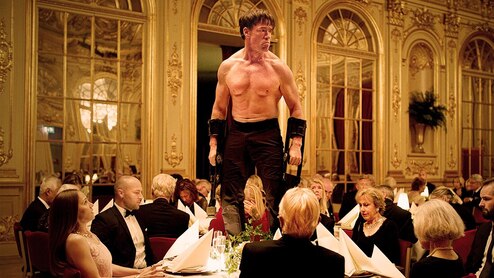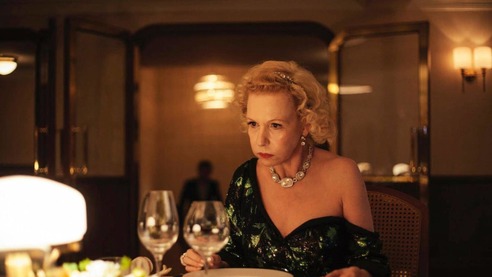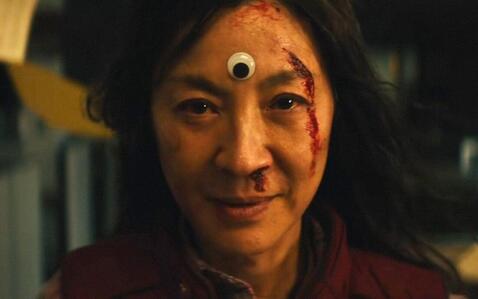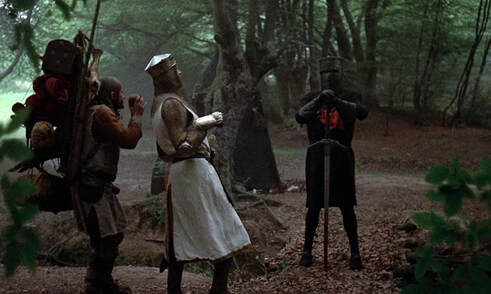|
Lanthimos continues his decade-plus long streak of entertaining provocations with Poor Things. The Greek director Yorgos has never been softer or more optimistic than he is here. That turn towards happy endings and pure comedy is not a loss of edge but the evolving ability to apply his style of filmmaking towards something bouncier and satirical. By far the most accessible of his films, Poor Things nonetheless looks and sounds like few others. Based on the film’s critical and commercial success, Lanthimos cements his status as one of the most important and inventive directors in modern cinema.
0 Comments
 Swedish director Ruben Ostlund makes big, heady films, and The Square is certainly one of those. Ostlund’s Force Majeure began with a split-second decision and played out its ramifications over the proceeding runtime, interrogating the bargains that families make with each other and nothing less weighty than what it means to be a man. For The Square, he turns his eye towards himself and creators like him, asking what is and isn’t art while also poking fun at the lifestyle of exactly the kind of person who would ask such a question. Each scene is about many things, both for the characters and for broader society, making The Square the kind of film that encourages the viewer to try and divine what it is the director is trying to say. That kind of intellectual work lands side by side with a film that constantly entertains in absurd conversations or broad set pieces, making The Square a delight across all cinematic avenues.
 The film that put Swedish director Ruben Ostlund on a global stage was Force Majeure, a satirical drama about what the members of a family should expect from a father and one of the best films of the 2010’s. When it came time for an American remake in 2020, the totally fine Downhill was made starring Will Ferrell and Julia Louise Dreyfuss, but it shaved about 40 minutes from the story, miscast Ferrell, and lost most of its nuance. That is often the first thing to go when films get translated from abroad for American audiences. For Ostlund’s English language debut, Triangle of Sadness, the acid-tipped director reveals what he thinks about the USA, which is that we need things spelled out for us. If we’re behind, we can be entertained with a lot of vomit and diarrhea. Revisiting the eat-the-rich trend that Ostlund was an early adopter of with previous film The Square, Triangle of Sadness provides an intro level course on class consciousness, wallowing in shit amidst a handful of strong performances and setpieces.
 Rick and Morty’s been cranking out episodes for years, and amidst its fast food cross-promotions and raunchy brand of science fiction, Dan Harmon and now-disgraced Justin Roiland have made the ur-multiverse text. They seem to be the only film/TV writers that are engaging with what it would mean if infinite possibilities existed and were within one’s grasp. Marvel’s attempts to do anything with the concept look shameful and pathetic next to Rick and Morty’s imagination. Daniel Kwan and Daniel Scheinert, otherwise known as Daniels, come closest with their gonzo sci-fi epic Everything Everywhere All At Once, a film so packed with large- and small-scale ideas that if one’s not working, the viewer need only wait a minute for a new one to be introduced. This kitchen sink approach makes for a singular moviewatching experience, though the takeaway still comes off as less-than if the viewer’s head contains dozens of episodes of a portal-gun wielding scientist and his grandson cavorting through the multiverse.
 We don’t do a lot of comedies at the Mediocre Movie Club because they can be hard to talk about. A film whose goal is laughter can be distilled into how many laughs it got, and what one person finds funny can be wildly different, to the point that laughing at a risqué or taboo joke, no matter how well constructed, might alienate someone offended by it forever. It’s easier to explain why a film makes me tear up than laugh. Laughter feels more unknowable. That’s all to say that on the whole, Monty Python and the Holy Grail doesn’t make me laugh. The guys who make up this British comedy troupe have surely inspired the things that I do find foundationally funny, like The Simpsons or Conan O’Brien, but what might have been innovative in the 70’s has since been perfected by better writers and become hacky, a fate all comedy is destined for and one which Monty Python has long since arrived at. |
AuthorsJUST SOME IDIOTS GIVING SURPRISINGLY AVERAGE MOVIE REVIEWS. Categories
All
Archives
April 2023
Click to set custom HTML
|

 RSS Feed
RSS Feed